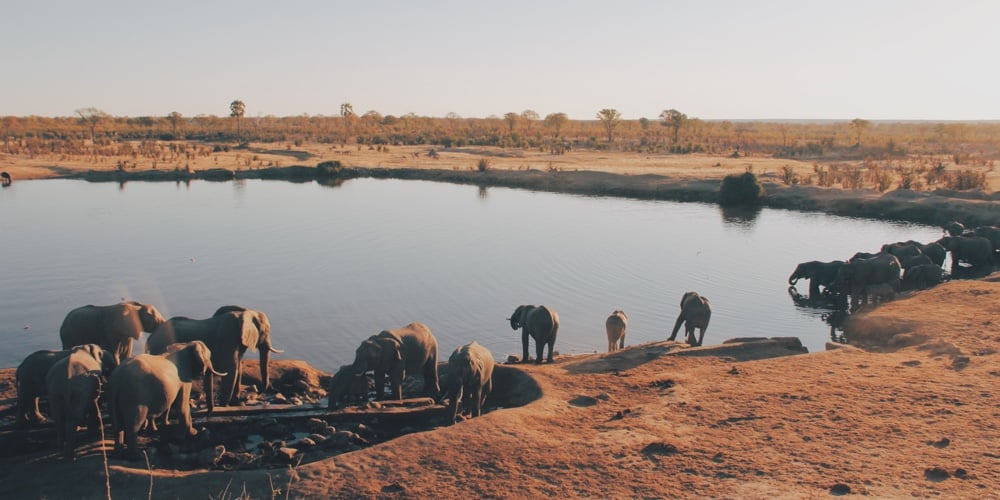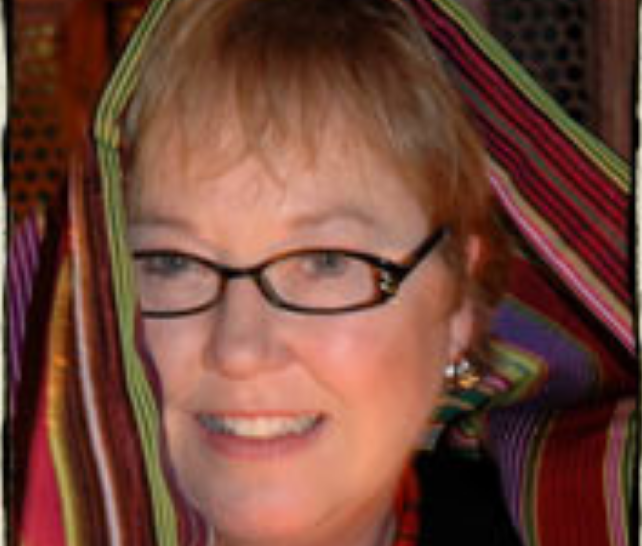Zimbabwe, located between Malawi and South Africa, is slightly larger than Montana with a population of 11,393,000. Years of civil war against white minority rule and a Freedom Fighters guerrilla uprising led to free elections in 1979.
Robert Mugabe, Zimbabwe’s dictator for 40 years, governed with socialist ideas and a government-controlled economy dominated the country's political system. In 2000, Mugabe’s chaotic land redistribution caused an exodus of farmers, crippled the economy, and ushered in widespread basic commodity shortages.
It was against this backdrop I was invited to train Zimbabwe’s CU Association consultants in strategic planning.
League consultant Maud Matenda met me at the airport. As we traveled to the retreat center, three hours from Harare, she advised me not to speak in public about credit unions. With a government-controlled economy, a people’s movement is unpopular and government eyes and ears were everywhere.
She brought home her point explaining that the week before she found her neighbor sobbing; the government had taken away the neighbor’s husband, a university professor, and killed him for speaking against the government.
Maud travelled the country under stealth, educating village women’s associations about cooperative principles; her activities could be construed as inciting the public against government controlled financial institutions. After seeing my panicked expression, Maud reassured me we would be quite safe as we would be staying in a remote religious training center.
A teacher’s credit union offered themselves as our case study, welcoming the opportunity to strengthen their operations. We had three weeks to review the CU while training league consultants, Maud, Thembe and Paul, in planning methodologies.
When we gathered at the center the next day, the tension in the room was palpable. Two intense official-looking strangers sat in the room like sentinels. I imagined firearms in their bulging briefcases, ready to take me hostage because I was white. They were clearly sent to observe what they imagined was an anti-government uprising.
Three board members whom I later learned were guerilla Freedom Fighters during their civil war, confronted the two suits. After a shouting match, I watched volunteers boo them out of the room, yelling this was a members-only meeting and the government had no business there.The officials slunk out of the room.
The mood lightened immediately and there was much laughter and camaraderie among the volunteers as they exercised their member-owner authority. The power of member-ownership took on new meaning for me.
We began with introductions and each person shared what they hoped would result from the workshop. Maud explained the train-the-trainer goals and how their credit union would benefit from the process.
Day one, we worked on building a safe communication environment with exercises to open dialogue and build rapport. The balance of week one progressed at a comfortable pace as we explored CU operating principles. They identified their CU values, vision, strengths and opportunities. It was a productive and powerful week.
Training planning facilitators works best when trainers are engaged experientially. As the instructor, I briefly modeled a process, then each consultant facilitated. Using this methodology, participants experienced planning exercises as trainers learned to facilitate.We took calculated learning breaks for the consultants to process the skills and how the group responded. My role was to gently intervene when conversations got off-track, and to model skills. The League consultants were quick learners and I took an increasingly passive role.
One night during the first week, the chairman approached me in private and asked, ” When will the money arrive?”
One of my rants about development programs is how money distributed by foreign governments lacks accountability and Zimbabwe foreign aid was no exception. The practice of throwing money at problems without answerability creates dependencies. Chinese philosopher Lao Tzu said, “give a man a fish and you feed him for a day”; you know the rest. Sustainability comes through transferring skills for self-sufficiency. The litmus test is when foreign aid and consultants disappear, how well does the system succeed without them?
The board chair and I discussed the member-funded capital, financial stability and resource distribution for member benefit. Two poverty alleviation philosophies to grow financial cooperatives are, to infuse external capital and/or generate internal capital from members. There is evidence for success with both approaches, although member-funded institutions create a more powerful personal stake. Experience shows members tend to be more responsible with self-funded capital.
By the end of our discussion, I saw disappointment in the Chairman’s eyes. Their CU clearly wanted external capital but resources would not be forthcoming. This particular World Council of Credit Unions program approach focused on transferring skills, not dollars.
Evenings were filled with the camaraderie of building a cohesive team. Around food-laden tables, we dined on sudza, a grain-based staple, fried chicken and plantains, braised greens and all manner of tasty sauces accompanied by fresh mango deserts. Maud explained these meals were more nutritious than most of their families would eat in a month and that volunteers’ daily travel stipend would be pocketed to buy food for their families on their return.
In our room after dinners, Maud, Thembi and I recounted stories that had us laughing and weeping over shared experiences. I was moved to tears by their tribulations under a dictatorship society where fearless women cooperated undercover for the common good. I cried tears of laughter as they explained how aspirin was a local birth-control method.
“How does it work?” I asked, wondering how a simple aspirin could prevent pregnancy. With a twinkle in her eye, Maud explained women simply put an aspirin between their knees and had to hold it in place.They shared how elder aunties held “kitchen parties” where secrets of married life are taught to young brides-to-be. These bonding experiences will forever be my treasured memories.
Guiding trainers to create equal power in group discussions is a challenge in a culture that reveres elders, financial clout and those who can read and write. It takes time for both participants and trainers to grasp the subtleties of egalitarian input without offending cultural sensitivities.
Facilitating brainstorming and giving equal value to each person’s idea is a skill learned through nominal group techniques, an organized idea-generating method through which facilitators reveal each person’s views without attaching an idea to the individual who identifies it. As trainers gained expertise in creating power parity, the discussions became more spirited.
By the middle of week two, the group was ready to tackle higher risk topics: obstacles, embarrassing weaknesses and practices an auditor would red-flag.Behind closed doors, the consultants and I worked to identify how the CU managed its finances and how to tactfully reveal questionable spending practices.
For example, our confidential analysis revealed that the board was directing excessive funds for personal gain, labeling expenditures travel stipends and marketing costs.Was the board intentionally self-serving? Was this corruptive use of member funds? How might we tactfully broach the issue?
With delicate situations, the best approach is to let issues surface organically from participants. We decided to simulate an Annual General Meeting. The board would assume the role of members and I would model the role of CEO.
For the exercise, I asked volunteers to ask questions their members might have about how member funds were managed. A large chalk board compared their financials to budget projections. We explained the members’ responsibility to ensure financial transparency and everyone assumed their roles vigorously.
Hands darted up with enthusiasm, voices shouted questions: “Why are salaries so low? Isn’t that why our employee turnover is higher than normal?” “Why have our marketing dollars not generated more new members?” “Why aren’t members getting a better return on their savings?” “How can we generate more income without punishing members?” We were on a roll.
From the back of the room, one board member shouted, “Why is the board getting so much money?” I let the silence linger to allow the question its significance. Then I responded, “How would you answer that member question?”
In the deafening silence that followed, the board member realized what he had revealed. His face grew red and his fists clenched as he stood with fire in his eyes and strode towards me. “This is all your fault!” he shouted, pointing an accusing finger three inches from my nose. “I am a Freedom Fighter and If you white people hadn’t been here we wouldn’t be in this situation!”
I have no recollection of what I did next. Maud told me I turned even whiter than I already was, shrugged my shoulders without a word and walked out the door. I heard shouting. Shona dialect words hurled about the room.
Maud appeared in the courtyard and asked me to take control. I explained they needed to work it out themselves. The shouting continued and chairs crashed. Thembe and Paul appeared outside. One by one volunteers drifted outside until more than half came to plead that I take back control. The room was silent when I finally re-entered; the tension profound. I pictured myself dismissed from the workshop the same as they had done with the errant government officials.
It is not the job of a facilitator to offer solutions. It is the facilitator’s job to help a group process conflict and come to resolution themselves. Sometimes silence is the most useful tool. In any case it was the only skill I could muster at the time; I didn’t trust my voice.
The awkward silence continued until the Freedom Fighter stood. With eyes lowered to the floor, he declared, “I take back what I said,” and sat firmly down. No amount of experience prepared me for where to go from there.
I stayed silent with a hundred thoughts colliding in my head. It is moments like these when inspirational leaders emerge and that’s what happened.The Board Chairman asked everyone to stand in a circle and hold hands. He explained when there is conflict in the village, people seek strength from a higher power. He asked us to sing the Lord’s Prayer.It was a stunning moment of solidarity -- and the fractured atmosphere was healed through song.
These are times for tough love and reality checks. Open and honest dialogue and no-nonsense conversations. I proposed two options. Stop the strategic planning training, pack our bags and return to Harare. The credit union could continue their operations status quo. And I outlined the consequences of that choice.
The second option was to power through with the courage to have difficult conversations. We would continue to challenge their practices in the best interests of their members. I held my breath as I waited for their decision. Heads swiveled as board members sought non-verbal consensus from each other.
They chose to stay.
I am frequently humbled by the tough choices developing country credit unions face. There is no doubt that when I accept an international assignment, I inevitably learn much more than I teach.
QUESTIONS TO CONSIDER
- How willing is your board to ask tough questions of management?
- How does your planning facilitator ensure equal input from all participants and create a safe communication environment?
- How does your strategic planning incorporate credit union values and principles in the discussion?







